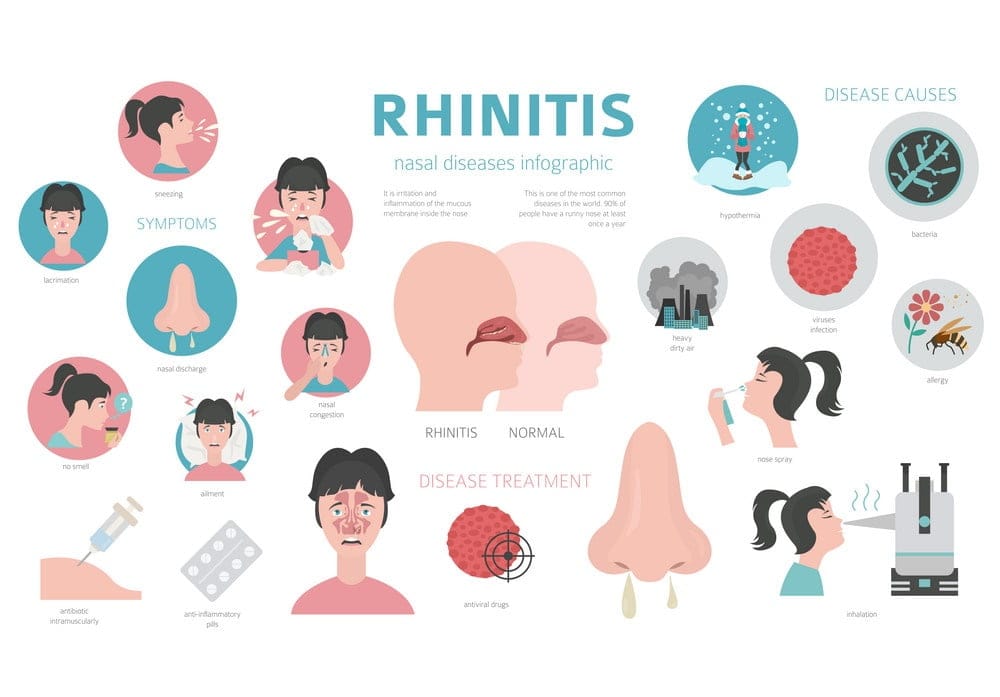Services, Sinus and Migraine
The Ultimate DAD Ayurveda Treatment for Sinusitis Migraine: Say Goodbye to Pain
Understanding Sinusitis and Migraines: Causes, Symptoms, and Impact
Are you tired of the constant pain and discomfort caused by sinusitis and migraines? Do you find yourself constantly reaching for over-the-counter painkillers, only to be disappointed by their temporary relief? If so, then it’s time to say goodbye to your pain with the ultimate DAD Ayurveda treatment for sinusitis and migraines.
This ancient Indian healing practice holds the key to long-lasting relief and a renewed sense of well-being. Sinusitis and migraines can wreak havoc on your daily life, leaving you feeling drained, irritable, and unable to fully enjoy even the simplest of activities. From throbbing headaches to nasal congestion and facial pressure, the symptoms of these conditions can be debilitating.
But here’s where Ayurveda comes in – an age-old holistic approach to health and wellness. Imagine being able to treat the root cause of your sinusitis and migraines rather than simply masking the symptoms. With DAD Ayurveda treatment, that’s exactly what you can achieve.
This unique approach focuses on rebalancing the body’s doshas – Vata, Pitta, and Kapha – to restore harmony and promote healing from within. By identifying the underlying imbalances that contribute to your sinusitis and migraines, Ayurveda offers a customized treatment plan tailored to your specific needs. But what exactly does this treatment entail?
How does Ayurveda address sinusitis and migraines? In this comprehensive guide, we will delve into the world of DAD Ayurveda, exploring its principles, techniques, and the specific remedies used to alleviate the pain associated with sinusitis and migraines. So get ready to embark on a journey of self-discovery and healing as we unravel the secrets of this ancient practice and bid farewell to the torment of sinusitis and migraines once and for all.
The Basics of Ayurveda: A Holistic Approach to Health and Wellness
Ayurveda, an ancient system of medicine originating in India, offers a holistic approach to health and wellness. It emphasizes the balance between mind, body, and spirit to promote overall well-being. In this blog post, we will explore the basics of Ayurveda and how it can be used as a natural treatment for sinusitis and migraine.
Ayurveda, which translates to “knowledge of life,” is based on the belief that each person is unique and has their own individual constitution, known as dosha. There are three main doshas in Ayurveda: Vata, Pitta, and Kapha. Understanding your dosha can help you identify the imbalances in your body and make necessary lifestyle and dietary changes to restore harmony.
When it comes to treating sinusitis and migraine, Ayurveda focuses on addressing the root cause of the problem rather than just alleviating the symptoms. It takes into account various factors such as diet, lifestyle, stress levels, and environmental influences.
In Ayurveda, the treatment for sinusitis and migraine begins with identifying the dosha involved. Vata-type individuals are more prone to migraines, while Kapha-type individuals are more susceptible to sinusitis. Pitta individuals may also experience both conditions due to certain triggers.
To treat sinusitis and migraine, Ayurveda recommends a combination of herbal remedies, dietary adjustments, lifestyle modifications, and natural therapies. Herbal remedies may include ingredients such as ginger, turmeric, cinnamon, and peppermint, which have anti-inflammatory and analgesic properties.
Dietary adjustments play a crucial role in Ayurvedic treatment. Avoiding processed foods, refined sugars, and excessive salt is recommended. Instead, incorporating warm, cooked foods and spices that help to pacify the dosha involved can be beneficial. For example, Vata-pacifying foods like cooked grains, soups, and ghee are recommended for Vata-type migraines.
In addition to dietary changes, lifestyle modifications are also essential in Ayurvedic treatment. Practicing stress-management techniques, such as meditation, yoga, and deep breathing exercises, can help reduce the frequency and severity of migraines and sinusitis. Avoiding excessive exposure to cold weather and maintaining a regular sleep schedule are also important.
Ayurveda also offers various natural therapies to complement the treatment of sinusitis and migraine. These therapies may include Nasya, which involves the administration of herbal oils or powders through the nasal passage to relieve congestion and inflammation. Shirodhara, a therapy where warm oil is poured on the forehead, can help calm the mind and reduce stress.
It’s important to note that Ayurveda treatments should be personalized according to an individual’s unique constitution and specific condition. Consulting with a qualified Ayurvedic practitioner is essential to receive the most effective and safe treatment plan.
In conclusion, Ayurveda provides a holistic approach to treating sinusitis and migraine. By addressing the root cause and considering the individual’s dosha, Ayurveda offers natural remedies, dietary adjustments, lifestyle modifications, and natural therapies that can help alleviate symptoms and promote overall health and well-being.
Introduction to DAD Ayurveda: What Makes It Unique?
DAD Ayurveda, also known as Dhanwanthari Ayurveda, is a unique form of Ayurvedic treatment that has gained popularity for its effectiveness in treating various health conditions. This holistic approach to wellness focuses on balancing the body, mind, and spirit to achieve optimal health.
One of the key factors that sets DAD Ayurveda apart from other forms of Ayurvedic treatments is its personalized approach. Each individual is unique, and DAD Ayurveda recognizes this by tailoring treatment plans to suit the specific needs of the patient. This personalized approach ensures that the root cause of the health issue is addressed, rather than just treating the symptoms.
In the case of sinusitis and migraines, DAD Ayurveda offers a comprehensive treatment plan that includes a combination of therapies, herbal medicines, and lifestyle recommendations. The aim is not only to alleviate the symptoms but also to address the underlying imbalances that may be contributing to the condition.
The treatment plan begins with a detailed consultation with an experienced DAD Ayurvedic practitioner. During this consultation, the practitioner will assess the patient’s overall health, medical history, and lifestyle factors. This information is then used to create a customized treatment plan that addresses the specific needs of the individual.
One of the key aspects of DAD Ayurveda is its focus on detoxification. The treatment plan may include Panchakarma, a cleansing process that helps to remove toxins from the body. This detoxification process can provide relief from sinus congestion and reduce the frequency and severity of migraines.
Along with detoxification, DAD Ayurveda also emphasizes the importance of establishing a healthy routine. This includes following a balanced diet, engaging in regular exercise, and practicing stress management techniques. These lifestyle recommendations help to support the body’s natural healing processes and promote overall well-being.
Additionally, DAD Ayurveda utilizes a range of herbal medicines to support the treatment process. These medicines are carefully selected based on the individual’s specific condition and needs. The combination of therapies, lifestyle changes, and herbal medicines work together to provide a comprehensive and effective treatment for sinusitis and migraines.
In conclusion, DAD Ayurveda offers a unique and personalized approach to treating sinusitis and migraines. The treatment plan is tailored to the individual, addressing the root cause of the condition and promoting overall well-being. With its emphasis on detoxification, lifestyle changes, and herbal medicines, DAD Ayurveda provides a holistic and effective solution for those seeking relief from sinusitis and migraines.
Rebalancing the Doshas: Restoring Harmony for Sinusitis and Migraine Relief
Rebalancing the Doshas: Restoring Harmony for Sinusitis and Migraine Relief
Sinusitis and migraines can be debilitating conditions that greatly impact one’s quality of life. While there are various treatment options available, Ayurveda offers a holistic approach to provide relief from these conditions. By understanding the doshas and rebalancing them, Ayurveda aims to restore harmony to the body, mind, and spirit.
In Ayurveda, sinusitis and migraines are believed to stem from an imbalance in the doshas – Vata, Pitta, and Kapha. Each dosha represents different elements and qualities within the body. Vata is associated with air and ether, Pitta with fire and water, and Kapha with earth and water. When these doshas become imbalanced, it can lead to various health issues, including sinusitis and migraines.
To address sinusitis and migraines, Ayurveda focuses on pacifying the aggravated dosha while strengthening the weakened dosha. For example, if Vata dosha is imbalanced, therapies and treatments that are grounding and calming are recommended. This may include gentle massages with warm oils, herbal steam inhalation, and the use of specific herbs and spices to soothe the nervous system.
Similarly, if Pitta dosha is the cause of the imbalance, Ayurveda suggests cooling and detoxifying treatments. This may involve consuming cooling herbs and foods, such as aloe vera and cucumber, to reduce inflammation and acidity in the body. Pitta-pacifying massages with cooling oils, like coconut oil or sandalwood oil, may also be recommended.
In the case of Kapha dosha imbalance, Ayurveda focuses on stimulating and invigorating treatments. This may include dry massages with herbal powders, steam therapies with warming herbs, and the consumption of stimulating herbs and spices, such as ginger and black pepper. These treatments aim to increase circulation and metabolism, reducing congestion and stagnation that may contribute to sinusitis and migraines.
In addition to specific treatments, Ayurveda also emphasizes lifestyle modifications to support long-term relief. This may involve adopting a balanced diet, practicing regular exercise, managing stress through meditation or yoga, and ensuring proper sleep and rest. By making these lifestyle changes, the body is better equipped to maintain harmony and prevent future imbalances.
It is important to note that Ayurveda treatments should be personalized to each individual’s unique constitution, symptoms, and imbalances. Consulting with a qualified Ayurvedic practitioner is crucial to receive an accurate diagnosis and tailored treatment plan.
In conclusion, Ayurveda offers a comprehensive approach to address sinusitis and migraines by rebalancing the doshas. Through a combination of specific treatments, lifestyle modifications, and personalized care, Ayurveda aims to restore harmony to the body and provide long-lasting relief. Embracing this ancient healing system can be a transformative journey towards holistic well-being.
Customized Treatment Plans: Tailoring Ayurvedic Remedies to Your Needs
Customized Treatment Plans: Tailoring Ayurvedic Remedies to Your Needs
When it comes to finding relief from sinusitis and migraines, many people turn to Ayurveda for its holistic approach and natural remedies. Ayurveda, an ancient Indian system of medicine, believes in treating the root cause of the problem rather than just alleviating the symptoms. This is where customized treatment plans play a crucial role.
In Ayurveda, each individual is unique, and their health conditions are influenced by various factors such as their dosha (body constitution), lifestyle, and environment. Therefore, a one-size-fits-all approach is not effective when it comes to Ayurvedic treatments. Instead, Ayurvedic practitioners tailor treatment plans to meet the specific needs of each individual.
When seeking an Ayurvedic treatment for sinusitis and migraines, it is essential to find a practitioner who specializes in customizing treatment plans. They will thoroughly assess your health condition, considering factors such as the severity and frequency of your symptoms, any underlying imbalances, and your overall health goals.
Based on this assessment, the practitioner will create a treatment plan that includes a combination of Ayurvedic remedies and lifestyle modifications. These remedies may include herbal formulations, dietary recommendations, lifestyle changes, and therapeutic practices such as yoga and meditation.
The customized treatment plan will address not only the symptoms but also the underlying imbalances that contribute to sinusitis and migraines. It will aim to restore balance to your dosha, strengthen your immune system, and improve overall well-being. By tailoring the treatment to your specific needs, you can experience long-lasting relief from sinusitis and migraines.
Additionally, a practitioner who specializes in customized treatment plans will closely monitor your progress and make necessary adjustments along the way. Ayurveda recognizes that health is dynamic and constantly changing, so treatment plans need to adapt accordingly.
In conclusion, when seeking an Ayurvedic treatment for sinusitis and migraines, it is crucial to opt for a customized treatment plan. By tailoring the remedies to your specific needs, Ayurveda can provide effective and long-lasting relief. So, embrace the holistic approach of Ayurveda and bid farewell to the pain and discomfort caused by sinusitis and migraines.
Key Ayurvedic Techniques for Sinusitis and Migraine Management
Ayurveda is an ancient system of medicine that offers various techniques for managing sinusitis and migraine. These techniques have been practiced for centuries and have shown promising results in providing relief from the symptoms of these conditions. If you are looking for natural and holistic approaches to address sinusitis and migraine, consider incorporating these key Ayurvedic techniques into your treatment plan.
- Nasya Therapy: Nasya therapy involves administering medicated oils or herbal formulations through the nasal passages. This technique helps in clearing the nasal passages, reducing congestion, and alleviating sinusitis symptoms. It also aids in improving blood circulation in the head and neck region, which can be beneficial for migraine management.
- Neti Pot: Neti pot is a simple yet effective Ayurvedic technique for sinusitis relief. It involves using a specially designed pot filled with warm saline water to flush out the nasal passages. This helps in removing mucus, allergens, and irritants from the sinus cavities, providing relief from congestion and sinus pressure.
- Ayurvedic Herbal Remedies: Ayurveda offers a wide range of herbal remedies that can be beneficial for sinusitis and migraine management. Some commonly used herbs include ginger, turmeric, licorice, and holy basil. These herbs possess anti-inflammatory, analgesic, and immune-boosting properties, which can help in reducing inflammation, relieving pain, and boosting overall well-being.
- Dietary Modifications: Ayurveda emphasizes the importance of a balanced and wholesome diet for maintaining good health. In the case of sinusitis and migraine, certain dietary modifications can be helpful. Avoiding cold and mucus-forming foods, such as dairy products, refined sugars, and processed foods, can help in reducing congestion and inflammation. Including warm and nourishing foods, such as soups, herbal teas, and fresh fruits and vegetables, can support the body’s natural healing process.
- Lifestyle Changes: Ayurveda recognizes the impact of lifestyle choices on overall health. Making certain lifestyle changes can have a positive effect on sinusitis and migraine management. Getting enough sleep, managing stress, practicing relaxation techniques like yoga and meditation, and maintaining a regular exercise routine can contribute to overall well-being and reduce the frequency and severity of sinusitis and migraine episodes. Remember, Ayurvedic techniques may vary based on individual constitution (dosha) and specific symptoms. It is advisable to consult a qualified Ayurvedic practitioner to get personalized recommendations and guidance. Incorporating these key Ayurvedic techniques into your sinusitis and migraine management plan can provide a natural and holistic approach to alleviate symptoms and improve your quality of life. Embrace the wisdom of Ayurveda and say goodbye to pain and discomfort caused by sinusitis and migraine.
Ayurvedic Remedies for Sinusitis: Alleviating Nasal Congestion and Facial Pressure
Ayurvedic Remedies for Sinusitis: Alleviating Nasal Congestion and Facial Pressure
Sinusitis, a condition characterized by inflammation of the sinuses, can cause significant discomfort and pain. It often leads to symptoms such as nasal congestion, facial pressure, headache, and difficulty breathing. While there are various treatment options available, Ayurveda offers natural remedies that can effectively alleviate the symptoms of sinusitis.
One of the key aspects of Ayurvedic treatment for sinusitis is balancing the doshas, or energies, in the body. According to Ayurveda, sinusitis is primarily caused by an imbalance in the Kapha and Vata doshas. By addressing this imbalance, Ayurvedic remedies aim to reduce inflammation, clear nasal congestion, and relieve facial pressure.
One popular Ayurvedic remedy for sinusitis is the practice of Nasya. This involves the administration of medicated oils or herbal concoctions into the nasal passages. Nasya helps to lubricate the sinuses, reduce inflammation, and clear the congestion. It is often performed as part of a daily self-care routine to promote overall sinus health.
Another effective Ayurvedic remedy for sinusitis is the use of herbal steam inhalation. This involves boiling water infused with herbs such as eucalyptus, peppermint, or chamomile, and inhaling the steam. The steam helps to open up the nasal passages, reduce congestion, and provide relief from facial pressure. It also has a soothing effect on the respiratory system.
In addition to these remedies, Ayurveda emphasizes the importance of a healthy and balanced diet to support sinus health. Foods that are warm, light, and easy to digest are recommended, while heavy and cold foods should be avoided. Incorporating spices such as turmeric, ginger, and black pepper can also help to reduce inflammation and promote sinus health.
Furthermore, Ayurveda recognizes the role of lifestyle factors in the management of sinusitis. Practices such as regular exercise, yoga, and meditation can help to improve overall immunity and reduce stress, which can contribute to the development of sinusitis. Adequate rest and proper sleep are also essential for supporting the body’s natural healing processes.
It is important to note that Ayurvedic remedies for sinusitis should be used under the guidance of a qualified Ayurvedic practitioner. They will be able to assess your individual constitution and recommend specific remedies based on your unique needs. It is also important to consult with a healthcare professional if your symptoms worsen or persist.
In conclusion, Ayurveda offers a holistic approach to the management of sinusitis. By addressing the underlying imbalances in the body, Ayurvedic remedies can effectively alleviate nasal congestion, facial pressure, and other symptoms associated with sinusitis. Incorporating these natural remedies into your daily routine can help you find relief and support sinus health in the long run.
Ayurvedic Remedies for Migraines: Relieving Throbbing Headaches and Sensitivity to Light
Ayurvedic Remedies for Migraines: Relieving Throbbing Headaches and Sensitivity to Light
Migraines can be a debilitating condition, causing intense throbbing headaches and sensitivity to light. While modern medicine offers various treatments for migraines, many people are turning to Ayurveda for a holistic approach to managing and relieving these symptoms. Ayurvedic remedies focus on balancing the body, mind, and spirit to promote overall well-being and alleviate migraine symptoms. In this article, we will explore some Ayurvedic treatments that can help in the management of migraines.
- Nasya Therapy: One popular Ayurvedic treatment for migraines is nasya therapy. This involves the administration of medicated oils or herbal preparations through the nostrils. Nasya therapy helps to clear the nasal passages, relieve congestion, and reduce headaches associated with sinusitis. It also helps in promoting mental clarity and reducing stress, which can trigger migraines.
- Shirodhara: Shirodhara is a deeply relaxing Ayurvedic therapy that involves a continuous flow of warm oil or herbal decoctions over the forehead. This therapy helps to calm the mind, reduce stress, and improve sleep quality. Regular sessions of shirodhara can be beneficial in preventing migraines and reducing the intensity and frequency of headaches.
- Ayurvedic Diet and Lifestyle Recommendations: Ayurveda places great emphasis on diet and lifestyle for overall well-being. In the case of migraines, certain dietary and lifestyle changes can help manage the condition. Avoiding trigger foods such as processed foods, caffeine, alcohol, and chocolate can reduce the frequency of migraines. Incorporating stress-reducing practices like yoga, meditation, and adequate sleep can also be helpful.
- Herbal Remedies: Ayurveda utilizes a wide range of herbal remedies for various health conditions, including migraines. Some commonly used herbs for migraines include brahmi, ashwagandha, ginger, and peppermint. These herbs have properties that can help alleviate headaches, reduce inflammation, and promote relaxation.
- Panchakarma Therapy: Panchakarma is a detoxification and rejuvenation therapy in Ayurveda. It involves various cleansing procedures to remove toxins from the body and restore balance. Panchakarma therapy can be beneficial in managing migraines by eliminating toxins that may contribute to the onset of headaches and improving overall well-being. It is important to note that Ayurvedic treatments for migraines should be done under the guidance of an experienced Ayurvedic practitioner. They can assess your unique constitution and provide personalized recommendations and treatments based on your specific needs. In conclusion, Ayurveda offers a holistic approach to managing migraines by addressing the underlying imbalances in the body, mind, and spirit. Nasya therapy, shirodhara, diet and lifestyle changes, herbal remedies, and panchakarma therapy are some of the Ayurvedic treatments that can help alleviate the symptoms of migraines. By incorporating these remedies into your routine, you can find relief from throbbing headaches and sensitivity to light, leading to improved overall well-being.
Conclusion: Embracing the Healing Power of DAD Ayurveda for Sinusitis and Migraine Relief
DAD Ayurveda, a powerful healing practice, offers effective relief for sinusitis and migraine. This ancient holistic approach combines natural remedies, prescribed herbs, and lifestyle modifications to alleviate pain and promote overall well-being.
Sinusitis and migraine are debilitating conditions that can significantly impact one’s quality of life. Sinusitis is characterized by inflammation of the sinus passages, leading to symptoms such as facial pain, congestion, and headaches. Migraine, on the other hand, is a neurological condition characterized by severe headaches, often accompanied by nausea, sensitivity to light and sound, and visual disturbances.
DAD Ayurveda views sinusitis and migraines as imbalances in the body’s doshas, namely Vata, Pitta, and Kapha. By restoring the balance of these doshas, DAD Ayurveda aims to alleviate symptoms and prevent their recurrence.
The treatment begins with a thorough examination and assessment by an experienced Ayurvedic practitioner. This involves analyzing the patient’s medical history, lifestyle, and diet to identify the root cause of the condition. Based on the assessment, a personalized treatment plan is created, which may include a combination of herbal medications, dietary recommendations, breathing exercises, and lifestyle modifications.
Herbal remedies play a crucial role in DAD Ayurveda treatment for sinusitis and migraines. Medicinal herbs like ginger, turmeric, and holy basil are known for their anti-inflammatory properties and can help reduce sinus inflammation and relieve headache symptoms. Additionally, herbs like brahmi and ashwagandha can help calm the nervous system, reducing the frequency and intensity of migraines.
Dietary adjustments are also an essential aspect of DAD Ayurveda treatment. Certain foods can trigger or worsen sinusitis and migraines, such as processed foods, dairy products, caffeine, and alcohol. An Ayurvedic practitioner will provide guidance on a suitable diet, emphasizing fresh fruits, vegetables, whole grains, and herbs that promote healing and balance within the body.
Breathing exercises, or pranayama, are an integral part of DAD Ayurveda. Deep breathing techniques help clear the nasal passages, improve oxygen flow, and promote relaxation. Nadi shodhana, or alternate nostril breathing, is particularly beneficial for sinusitis and migraines as it helps balance the flow of energy in the body.
In addition to these specific treatments, lifestyle modifications are recommended to support overall well-being and prevent future episodes of sinusitis and migraines. This may include stress-reducing practices like yoga and meditation, adequate sleep, regular exercise, and maintaining a consistent daily routine.
DAD Ayurveda offers a holistic and natural approach to healing sinusitis and migraines. By addressing the underlying imbalances in the body, it aims to provide long-term relief and improve the overall quality of life. If you suffer from chronic sinusitis or migraines, consider exploring the healing power of DAD Ayurveda and experience the transformation it can bring to your health and well-being.








